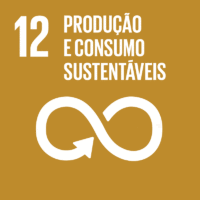Ciência_Iscte
Publicações
Descrição Detalhada da Publicação
Analyzing the causal dynamics of circular-economy drivers in SMES using interpretive structural modeling
Título Revista
Energy Economics
Ano (publicação definitiva)
2024
Língua
Inglês
País
Estados Unidos da América
Mais Informação
Web of Science®
Scopus
Google Scholar
Esta publicação não está indexada no Overton
Abstract/Resumo
The circular economy has emerged as a crucial way for companies to achieve their sustainability goals. Numerous businesses, especially small and medium-sized enterprises (SMEs), are integrating circular-economy projects into their operations. However, this undertaking presents multiple challenges as many managers must grapple with constraints in resources and expertise. This study’s primary objective is to develop a process-oriented decision-making system designed to deal with complex circular-economy scenarios. The proposed analysis system can help SMEs identify the driving forces behind circular-economy principles and evaluate the intricate connections between these determinants, using a unique combination of multiple criteria decision analysis methods (i.e., cognitive mapping, and interpretive structural modeling). Collaborative sessions involving circular-economy experts were instrumental in refining the analysis system, and in-depth discussions with other specialists from the International Labor Organization further enriched this decision-support system. The findings include that circular-economy drivers can be grouped into five clusters: products, processes, policies/regulations, attitudes/behaviors, and communication/awareness. This structured breakdown provides SMEs with the tools to comprehend and address the pivotal factors that shape circular-economy initiatives. This pioneering study thus produced a comprehensive decision-making model attuned to the intricacies of the circular economy while highlighting the benefits of collaborative endeavors involving industry experts and global decision makers.
Agradecimentos/Acknowledgements
--
Palavras-chave
Circular economy,Cognitive mapping,Interpretive structural modeling (ISM),Small and medium-sized enterprises (SMEs),Sustainability
Classificação Fields of Science and Technology
- Economia e Gestão - Ciências Sociais
Registos de financiamentos
| Referência de financiamento | Entidade Financiadora |
|---|---|
| UIDB/00315/2020 | Fundação para a Ciência e a Tecnologia |
| UIDB/04630/2020 | Fundação para a Ciência e a Tecnologia |
Contribuições para os Objetivos do Desenvolvimento Sustentável das Nações Unidas
Com o objetivo de aumentar a investigação direcionada para o cumprimento dos Objetivos do Desenvolvimento Sustentável para 2030 das Nações Unidas, é disponibilizada no Ciência_Iscte a possibilidade de associação, quando aplicável, dos artigos científicos aos Objetivos do Desenvolvimento Sustentável. Estes são os Objetivos do Desenvolvimento Sustentável identificados pelo(s) autor(es) para esta publicação. Para uma informação detalhada dos Objetivos do Desenvolvimento Sustentável, clique aqui.

 English
English




